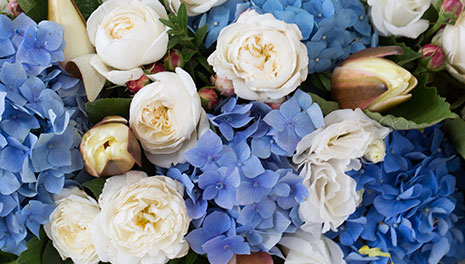Blog
5 Ways That Flowers Can Improve Your Mental Wellbeing

Do flowers really make us happy? Studies conducted by Dr Jeanette Haviland at Rutgers University would suggest so. While it certainly is great to have the scientific evidence to back it, artists, poets, florists and gardeners have known this anecdotally for centuries.
There are many creative, hands-on methods that are effective in helping those striving for improved mental health.
Mental illness is now one of Australia’s major health issues. According to the Australian Bureau of Statistics, one in five Australians experience a mental health condition in any given year and almost one in two will experience a mental health condition at some point in their lifetime.
The most worrying statistic of all however, is that of the 3 million Australians who are living with depression or anxiety, only 35 per cent will seek treatment, meaning that so many others are suffering in silence and likely without any support, professional or otherwise.
While many assume that the only strategies involve expensive counselling or are prescription driven, there are actually many creative, hands-on methods that are effective in helping those striving for improved mental health.
One of those I discovered myself when I experienced my first mental health ‘episode’. I was young, an award-winning florist and I had the world at my feet. However, at 24, I hit rock bottom, suffering from depression and anxiety before my passion and love for flowers pulled me from my darkest days.
There is much research to support the premise that flowers contribute significantly to a person’s overall happiness. In fact, behavioural research from Rutgers University conducted over a 10-month period explored the link between flowers and life satisfaction. Their findings show that flowers are a natural moderator of moods and have strong positive effects on emotional health, providing scientific evidence that flowers do promote happiness and joy which are certainly essential for our psychological health and wellbeing.
Based on my own experience, I believe flower arranging to be a unique and creative ‘hands on’ solution that allows people to access the healing property of flowers as a key component of an effective health and wellbeing strategy.
Here are five ways that flowers can be introduced into a weekly routine to help achieve better mental health:
1. Buy yourself a bunch from the markets. Buy yourself a gorgeous oversized vase and start filling it with different bunches of fresh flowers from the markets each week and let the heady scents fill your home for days. Research has indicated that flowers have a long-term positive effect on moods with study participants feeling less depressed, anxious, and agitated after being exposed flowers on a regular basis.
2. Plant a flower garden. Head down to Bunnings and secure yourself some seedlings. Make your weekend hobby the planting and tending to your own flower garden, the proceeds of which you’ll be able to proudly display to anyone who enters your front door.
3. Give flowers more regularly as gifts. All study participants from the Rutgers University study, in every age group, expressed excitement when receiving flowers. Reactions included surprise, genuine happiness and gratitude resulting in a deeper and more meaningful relationship between the giver and receiver.
4. DIY Flowers. If you prefer the self-taught method, join an online class on how to create your own gorgeous floral arrangement and make it a hobby to create a unique arrangement every week. You could even go one step further and create your own Instagram page to showcase your creative genius!
5. Do a course in flower arranging. Find a workshop or short course near you and enrol to learn how to turn those $10 market flowers into a floral masterpiece. Flower arranging has the power to help us enter into a parasympathetic state which moves us from flight or fight into relax and reset which makes it a very powerful ‘pick me up’ when you’re feeling down.
As published in Wellness Daily written by Yvette Timmins, founder and director of Bloom College.
